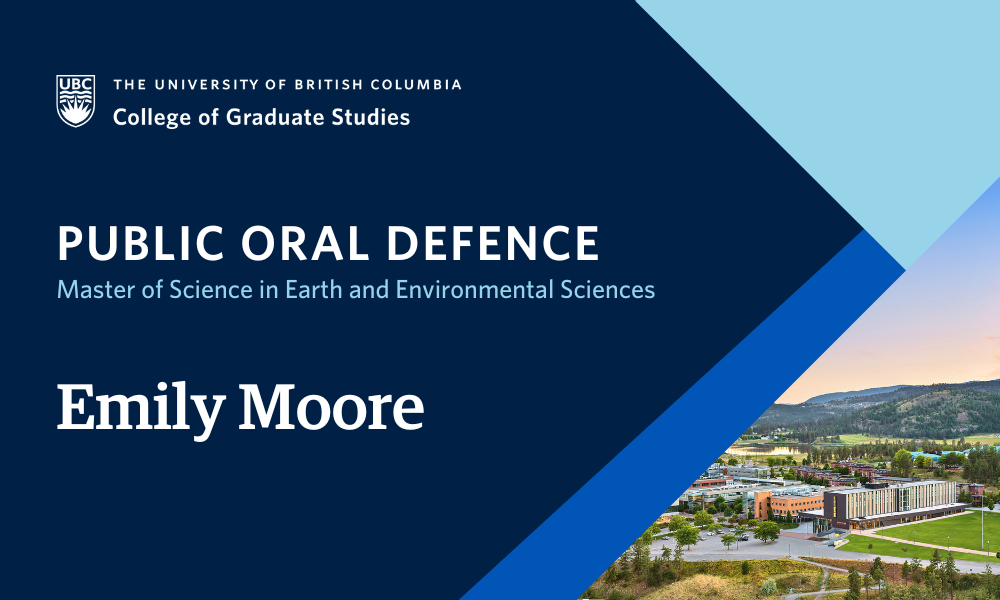
- This event has passed.
Thesis Defence: Hydroclimatic controls and the influence of climate change on the timing of the kokanee spawning period in Peachland, BC
January 25, 2024 at 9:00 am - 1:00 pm

Emily Moore, supervised by Dr. Adam Wei, will defend their thesis titled “Hydroclimatic controls and the influence of climate change on the timing of the kokanee spawning period in Peachland, BC” in partial fulfillment of the requirements for the degree of Master of Science in Earth and Environmental Sciences.
An abstract for Emily Moore’s thesis is included below.
Defences are open to all members of the campus community as well as the general public. Registration is not required for in person defences.
ABSTRACT
Negative impacts of climate change and watershed disturbance are becoming increasingly important for freshwater ecosystems in the Pacific Northwest. Increased air temperatures and changes to precipitation regimes alter stream flow and temperature, especially in snow-dominated watersheds. Changes in these habitat variables can impact the success of critical salmonid life stages, such as spawning, leading to population decline. Kokanee fisheries in the Okanagan Valley have immense economic and cultural value, however their continued success is threatened by a changing climate. The questions I aimed to address with my research were: (1) which hydroclimatic variables were the most influential in determining the timing of kokanee spawning in Peachland and Trepanier Creeks over the last 30 years? And (2) how will a changing climate alter spawn timing in the future? Linear models were created to predict both spawning start time and duration in both creeks. Results showed that kokanee spawning in both creeks had advanced over the past 30 years. The timing of spawning was most strongly predicted by variables related to air temperature. Flow appeared to be more important for determining spawning timing in the unregulated Trepanier Creek. This difference likely arose due to the presence of a dam in Peachland Creek watershed which provided regulated flows throughout the spawning period. Spawning duration was best predicted by temperature variables and spawning start time, with an earlier spawning start contributing to a longer spawning duration. Climate change models predict alterations to relevant hydroclimatic variables that will lead to advanced spawning in both creeks. Spawning duration was also predicted to increase under climate change, however the inclusion of biological controls on spawning duration in the model would improve prediction capability.